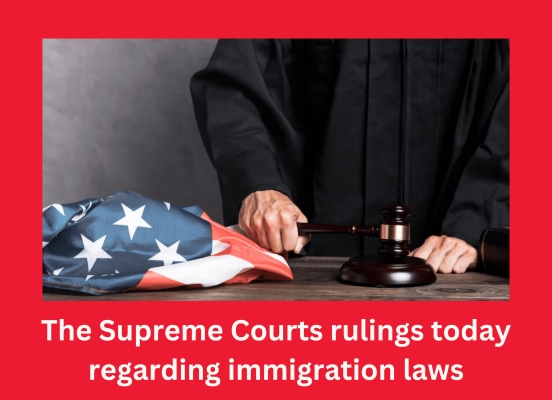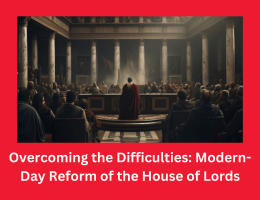
The Supreme Courts rulings today regarding immigration laws
- By admin --
- Wednesday, 03 Apr, 2024
Today, the Supreme Court rendered decisions in two instances pertaining to immigration laws. "Maybe the most important in immigration law since the Immigration Act 1971 was passed" is how the rulings have been characterized. In any event, what were the issues at hand, and why are they important?
The Immigration Act serves as the legal basis for establishing entry and stay restrictions for those who do not possess the "right of abode" in the United Kingdom. However, the Act does not specify specific guidelines governing the resolution of individual instances, as is frequently the case. Rather, the Home Secretary establishes regulations that specify the specifics. Importantly, the Home Secretary is required to "lay before Parliament statements of the rules, or of any changes in the rules, laid down by him as to the practice to be followed in the administration of this Act," according to section 3(2) of the Act.
The legal foundation for establishing when individuals without the "right of abode" in the UK may In the instances that the Supreme Court resolved today, the claimants had been refused permission to stay in the UK due to regulations that, in compliance with section 3(2) of the Act, had not been presented to Parliament. The plaintiffs argued that this implied the restrictions were unenforceable and that, as a result, they could not be refused permission to stay based only on the rule. The claimant was successful in one of the cases (you can find the other one here).Two important considerations came up.
An additional power? Did the Home Secretary have the authority to establish immigration laws on her own, independent of the Immigration Act? If such is the case, she may contend that the contested rule did not require parliamentary approval because it was enacted under that other authority. The Supreme Court disagreed. The 1971 Act, which was meant to be a comprehensive system of immigration law, eliminated any further authority the Home Secretary may have had to control immigration. This portion of the ruling upholds a fundamental constitutional tenet: the Government cannot circumvent legislation passed by Parliament by using its so-called "prerogative," or common law, powers.
A rule may not always be a "rule." Is it possible to argue that the policy that was implemented against the claimant wasn't a "rule" in the first place and didn't have to be presented to Parliament? Since the claimant was not performing a "skilled" work, the claimant had been denied leave to remain; nevertheless, Parliament had never been asked to define what a "skilled" employment was. Was that definition a "rule" in the sense that it needed to be established? Yes, the Court declared, any requirement that if disregarded may result in the claimant's denial of authorization to enter or remain in the nation is a "rule."
All of this may seem really technical, and it is, in a sense. However, since it "drives a coach and horses through the thousands of meticulously detailed pages" of immigration policy—which the government didn't bring before Parliament because it didn't think they were genuinely "rules"—it is likely to have significant practical ramifications in the near future. Longer term, the Government might be able to obtain Parliament to change the Immigration Act, eliminating the need for Parliament to consider every regulation.
That may seem like a simple fix, but as Lord Hope stated in the Supreme Court, "the Home Secretary's actions and any modifications to the regulations she proposed to implement would be subject to public scrutiny. That was what Parliament was insisting upon [by passing section 3(2)]." Thus, more significant queries come up. How much of Parliament's legislative authority should be delegated to the Government (for example, by permitting it to enact laws similar to the ones in question)? And how closely should Parliament examine the employment of this kind of power when it does share it?





